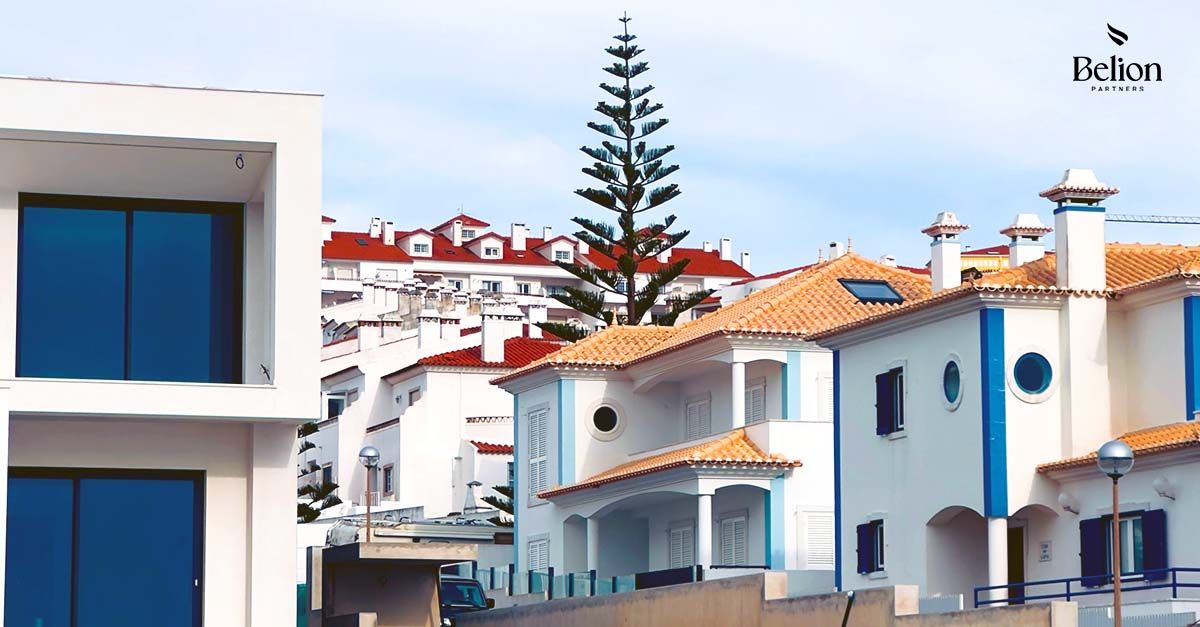Portugal Short-Term Rentals (Alojamento Local): A Launch & Compliance Guide for Non-Resident Owners

Miguel Pinto | Certified Accountant

Nuno Rodrigues | Certified Accountant
Portugal continues to attract international investors who value its quality of life, stable property market and favourable climate. Many foreign buyers acquire homes for future relocation or occasional personal use, but are increasingly seeking to maximise their investment by renting them out on a short-term basis when they are not in residence.
This model - known locally as Alojamento Local (AL) - allows owners to generate income while keeping the property available for personal holidays or eventual settlement. Yet, to operate legally and efficiently, non-resident owners must ensure that their AL activity is properly registered and compliant with Portuguese tax and licensing rules.
Below, we highlight the key points every foreign owner should understand before offering a property on Airbnb, Booking.com or similar platforms.
Registering the Activity
The first step is to obtain a Portuguese Tax Identification Number (NIF). Non-residents outside the EU or EEA must also appoint a fiscal representative to handle their communication with the Portuguese Tax Authority (Autoridade Tributária – AT).
Once this is done, owners must file a start-of-activity declaration (Declaração de Início de Atividade) with the AT, indicating the relevant business code (CAE), usually 55201 – Alojamento mobilado para turistas. At this stage, it is also necessary to provide a valid bank account (IBAN). It is advisable to use an account exclusively dedicated to the activity, ensuring that all related payments and receipts are made through it, as this facilitates clear accounting records and compliance verification.
This registration formally establishes the owner as a service provider of short-term accommodation and enables the issuance of invoices and tax filings.
Choosing the right VAT (IVA) and accounting regime is equally important. The small-business exemption offers simplicity and relief from charging VAT, yet it prevents recovery of input VAT on expenses such as renovation or furnishings. The standard regime, on the other hand, allows for VAT deduction, though it requires regular filings. A qualified accountant can help determine which option best fits each investor’s profile.
Obtaining the Alojamento Local Licence
No property may be operated as a short-term rental without proper AL registration. The process is conducted via the Balcão do Empreendedor online portal and managed at the local Municipal Council.
Once the registration is approved, an RNAL number is issued and must appear in all listings, promotional materials, and signage on the property.
However, two important caveats must be considered:
- Municipal restrictions on new licences
Some municipalities, especially Lisbon, have suspended the issuance of new AL licences in certain areas — known as areas of containment or zones where the local supply of AL is closely regulated. For example, Lisbon extended its suspension of new AL registrations in many freguesias, pending the adoption of an updated municipal regulation.
Porto and other urban municipalities may also adopt restrictive criteria. Applicants must always check the municipality’s AL map/zoning rules before planning to obtain a new licence. - Transfer of existing licences
Recent legal changes have reintroduced the transferability of AL licences. As of August 2024, a licence tied to a property can generally be transferred to a new owner when the property is sold, even if new licence issuance is suspended.
That said, the municipal regulations may impose exceptions or limitations (for instance, in areas of containment) that restrict transfer or impose conditions.
Practically, when negotiating a purchase, one must verify that the existing AL registration is valid, current, and eligible for transfer and ensure that the municipality accepts the change of ownership under its local rules.
Because of these restrictions, acquiring a property that already holds a valid AL licence can offer a significant advantage in markets where new licences are constrained. But it’s not a guaranteed solution - municipal rules must still permit transfer in the relevant location.
Beyond the Licence: Operational Compliance
Operating an AL involves a few additional registrations and routine obligations:
- Guest reporting (SIBA): all foreign guests must be reported to the immigration database within three working days of both arrival and departure.
- Tourist tax: many municipalities require the collection of a per-night municipal tax (for example, €4 per person in Lisbon), which must be declared and paid monthly.
- Safety and consumer protection: the property must hold civil liability insurance, maintain minimum safety equipment, and display both a physical and electronic complaints book.
These obligations, though administrative in nature, are monitored closely — non-compliance may result in fines or suspension of the AL licence.
Understanding VAT and Income Tax
Short-term accommodation in Portugal benefits from a reduced VAT rate (6% on the mainland). When cleaning fees are part of the accommodation service, the same rate applies; when invoiced separately, they may fall under the standard 23% rate.
For personal owners, income from AL is taxed under Category B of the Personal Income Tax (IRS), either under the simplified regime or organised accounting. Corporate owners are taxed under Corporate Income Tax (IRC).
In both cases, payments made to non-resident entities (such as Airbnb or Booking.com commissions) must be reported through Modelo 30, and VAT on these services must be self-assessed under the reverse-charge mechanism.
Invoicing and Digital Compliance
Each booking requires the issuance of an invoice to the guest, not to the platform. The invoice must include the total price of accommodation and, where applicable, cleaning and tourist-tax amounts.
For occasional hosts, the Tax Authority’s online invoicing portal may be used; frequent operators or management companies must use certified invoicing software that automatically generates QR and ATCUD codes and reports transactions to the AT.
Even when platforms collect payments directly from guests, the obligation to issue invoices and declare income remains with the registered operator.
Owner or Management company: Who Should Invoice?
Many non-resident owners appoint local management companies. Depending on the contract, two models are common:
- Agency model – the manager acts on behalf of the owner, issuing invoices in the owner’s name and charging a management fee (subject to standard VAT). In this case, the Alojamento Local licence (RNAL) remains in the owner’s name, as the owner is the official operator of the activity, while the manager provides support services.
- Lease model – the manager rents the property and operates the AL in its own name, paying fixed rent to the owner. The Alojamento Local licence must therefore be registered to the manager, as the entity carrying out the short-term rental activity. The lease agreement should expressly authorise the use of the property for AL purposes; otherwise, the municipality may refuse to register the licence in the manager’s name. In this model, the owner’s income is treated as rental income, usually exempt from VAT under Article 9(29) of the VAT Code, while the operator assumes full AL responsibility.
Clarifying which structure applies is crucial to avoid inconsistent VAT or income-tax reporting.
Practical Considerations for Platform-Based Rentals
Platforms such as Airbnb or Booking.com typically collect payment from guests and transfer the balance to the owner after deducting their commission.
The owner must still issue an invoice to the guest for the full amount and account for VAT appropriately. Commission payments to non-resident platforms trigger
reverse-charge VAT and
Modelo 30 filing duties, even when the owner benefits from the VAT exemption regime.
A Solid Compliance Foundation
While online sources can provide general orientation, the safest approach is always to cross-check requirements with Turismo de Portugal, the Tax Authority, and the relevant Municipal Council.
Portugal’s regulatory framework for short-term rentals is clear but increasingly rigorous, especially in major cities. Ensuring that registrations, invoicing, and tax obligations are correctly handled from the outset prevents costly regularisations later.
Conclusion
Running an Alojamento Local can be a rewarding way to make the most of your Portuguese property, combining personal enjoyment with a reliable income stream. But like any business activity, it requires proper structuring, registration and ongoing compliance.
At Belion Portugal, our team assists non-resident property owners with the complete AL setup, from fiscal registration and municipal licensing to invoicing, VAT and annual filings.
If you own or plan to purchase a property in Portugal and wish to explore how to optimise its use through compliant short-term rentals,
our team will be pleased to guide you every step of the way.




